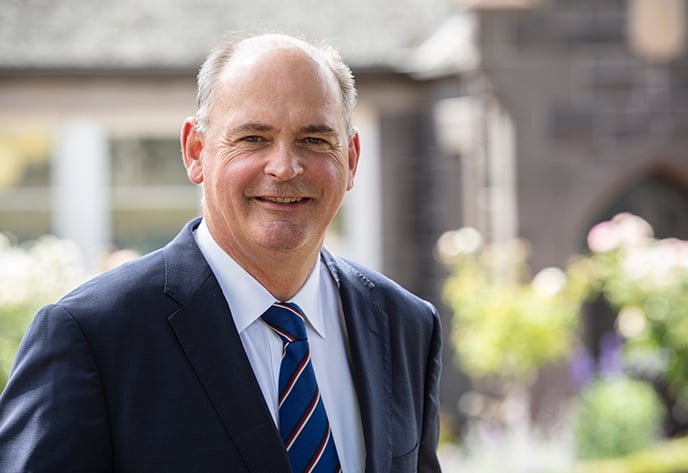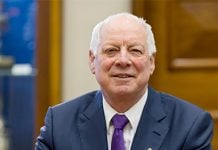In today’s world, a good education –such as the one Melbourne Grammar School aspires to provide – means developing an intelligent, respectful and resilient person who is fully equipped to participate in, and contribute to, our ever-changing globalised society.
We continually review and adapt our educational programs as the world beyond the School gates changes at an ever-increasing rate. However, we recognise that the fundamentals are just as important as they ever were.
The traditional core domains of literacy and numeracy continue to provide the bedrock of our educational program, but the information stream students receive is no longer restricted to verbal or written sources. Accordingly, digital literacy and algorithmic understanding now sit alongside the traditional skill sets.
When I was a Melbourne Grammar student, knowledge acquisition was the focus, and my teachers did an excellent job of ensuring I left school with the knowledge, confidence and values I needed to thrive in the world. Today, with a world of information available online and instantly – only some of it reliable – being able to find something out must be complemented by an ability to think critically and interpret and evaluate the data and information we receive.
Students need to know the facts, but they also need to be able to assess the validity of the sources they draw these facts from. It’s a process of filtering through a wash of information to find nuggets of truth. We also need to be able to synthesise and link ideas together, creating deeper understanding or novel approaches.
The shift in technology has also led to a shift in our approach to ‘writing’. This area now extends to a wider understanding of what constitutes effective communication. Speaking and writing remain central, but proficiency in articulating ideas persuasively across diverse technological platforms is imperative, with both clarity and adaptability in communication being a central aspect to our teaching program. Students also need to understand how others might interpret their ideas and respectfully support their ideas.
These are some of the reasons we start formally teaching philosophy as early as Year 7, with some aspects embedded in our primary school curriculum. Philosophy gives students the skills they need to question new ideas, to create and test propositions, and to find out for themselves what is true.
In addition to critical thinking, surrounding the teaching of the core skills are other thinking skills like creative thinking and computational thinking. Creativity helps people to develop a new product or idea that has worth. It can be as simple as: here’s an idea, or here’s a problem, how do we solve it?
We also need to develop our students’ computational (or algorithmic) thinking, which essentially identifies, quantifies and improves the steps in a given process. It asks: How do you get to the endpoint as effectively and efficiently as possible? Being able to think in this way helps us to find places where we can save time, energy, and resources.
And finally, because today’s society is fast-paced, complex, and global, another essential element to a good education in the 2020s is an understanding of humanity. When we can connect with people across the world in an instant, knowing about their histories, perspectives, motivations, and cultures can be the difference between a conflict and a meaningful exchange.
The societal context in which our School operates will always transform, but we remain committed to teaching the fundamental pillars of literacy and numeracy well, while recognising that we must be also prepared to adapt our broader educational approach to the context in which we are living.
Philip Grutzner
Headmaster



